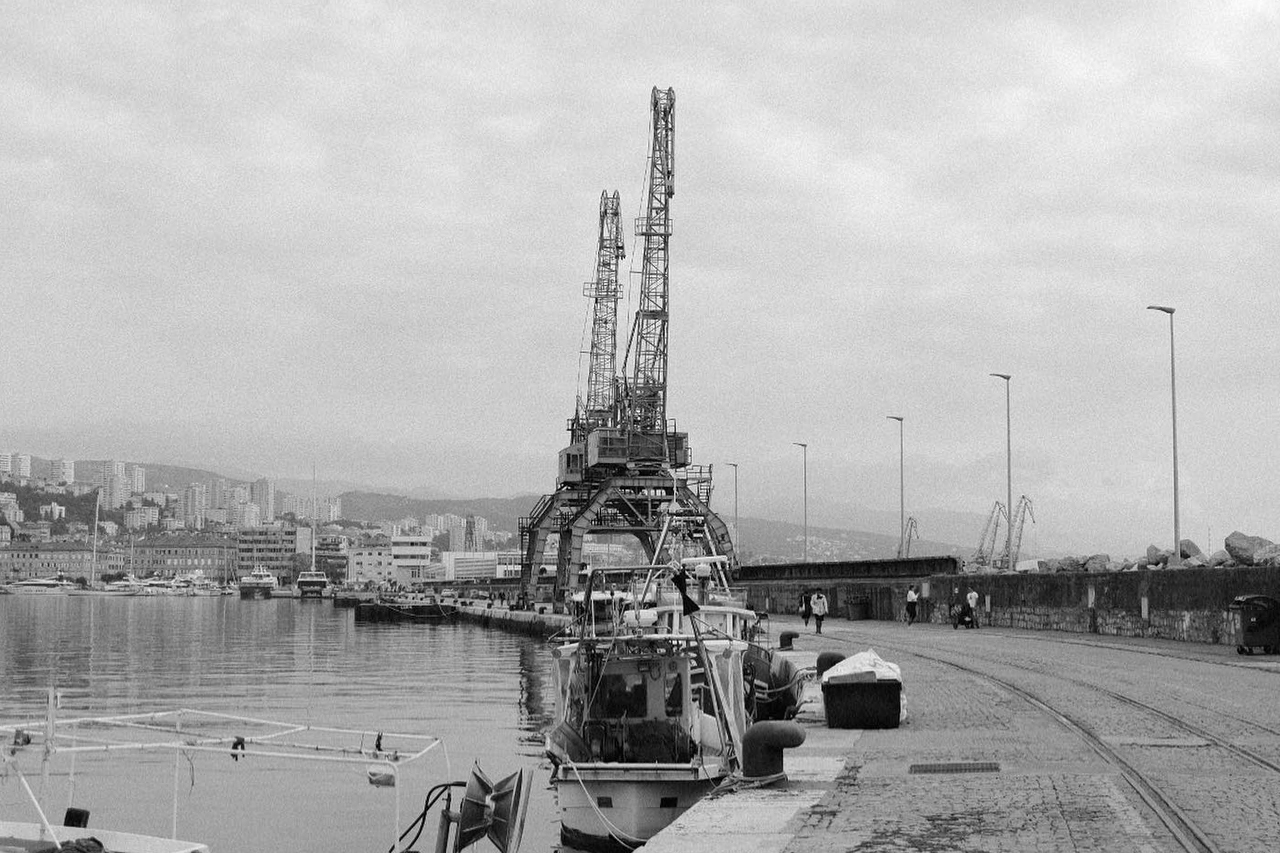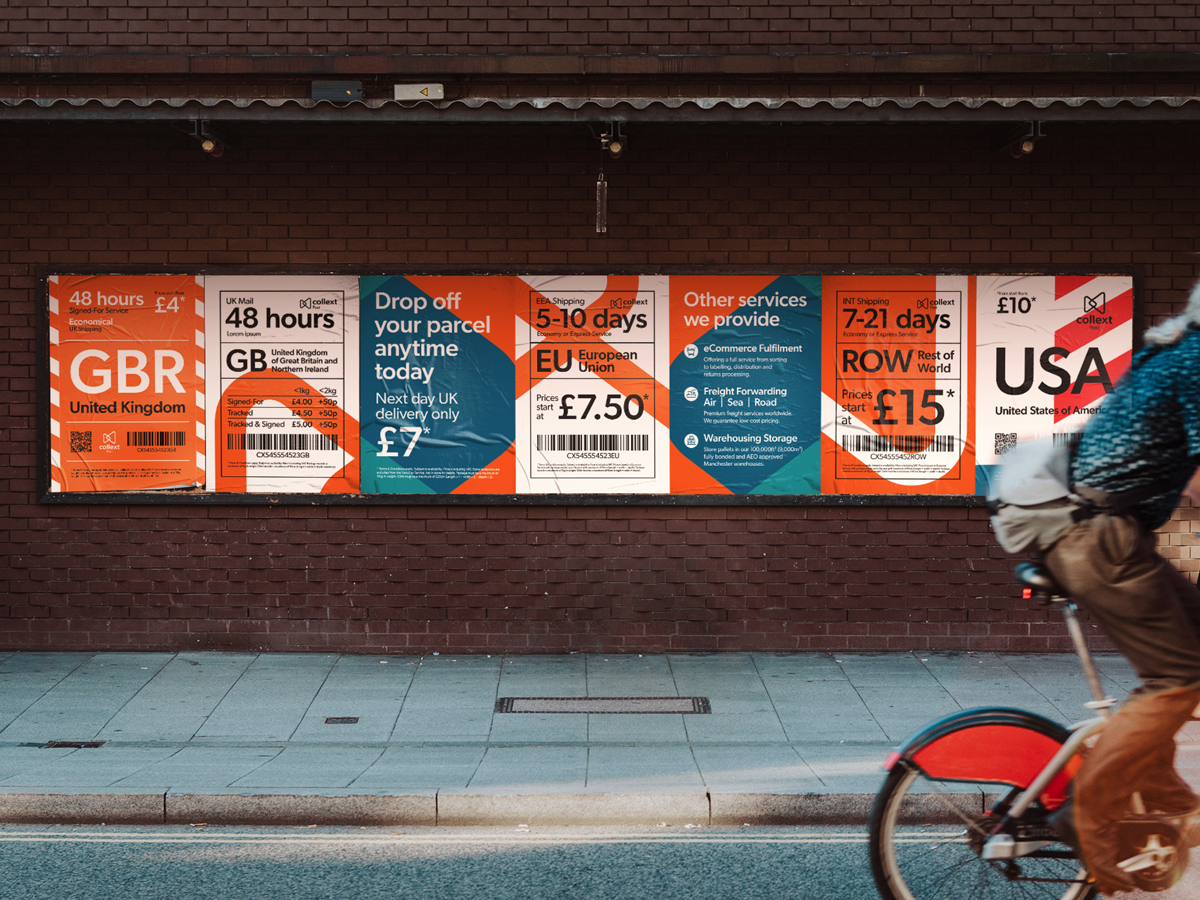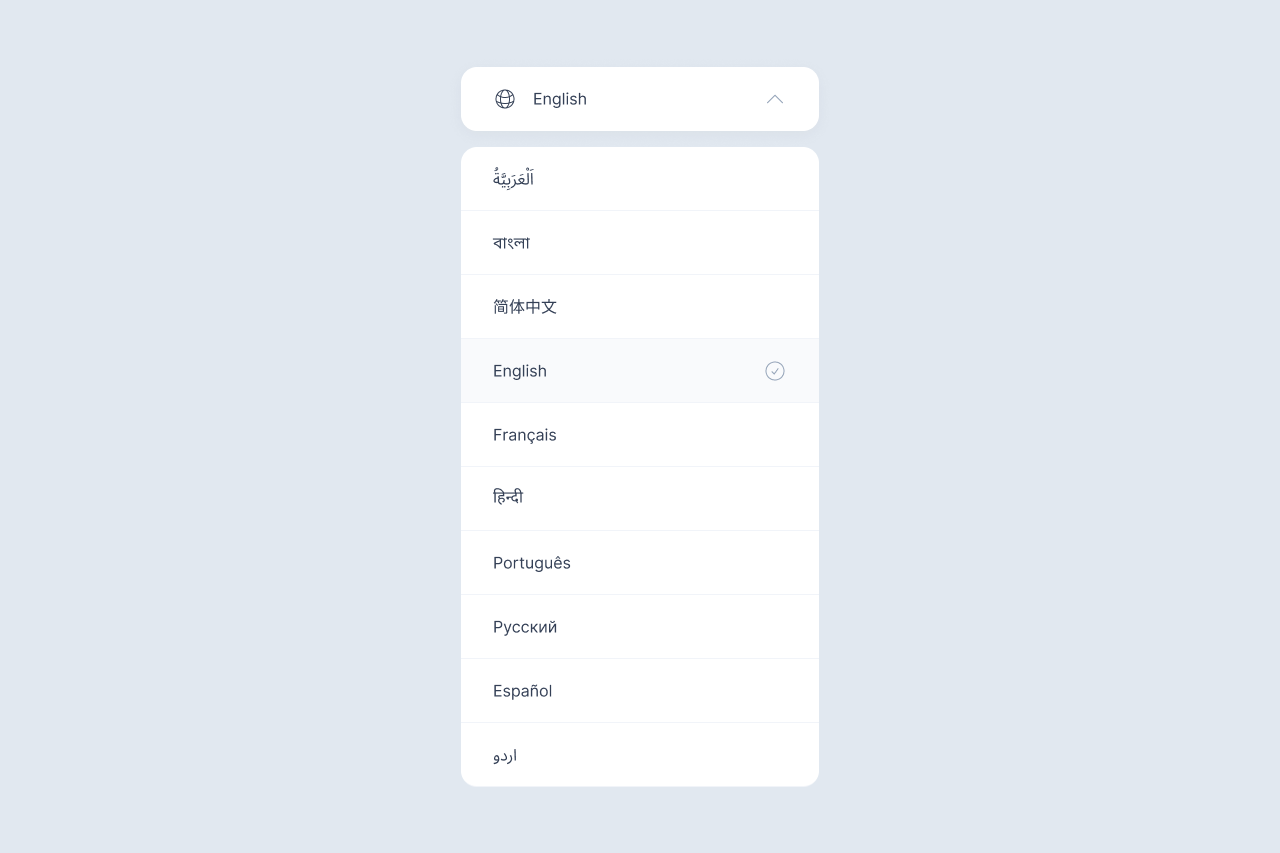The city has now been my adopted home, so I’ve spent some time getting to know and understand the local history. And as a graphic designer, I’ve of course been invested in learning about the historical companies and brands from the region.
Rijeka is Croatia’s 3rd largest city (after Zagreb and Split) known in the region for its rich industrial history. Due to its strategic position on the Adriatic Sea, the city has spent many years changing rulers and demographics over the past few centuries and has actually been part of 7 states since 1918 (not including the disputed and temporary administrations!).
From this constant melting pot of cultures and people, it has come to my attention that this small city has birthed quite a few deep-rooted companies, so I thought it would be useful to create a list of iconic logos from Rijeka with the hopes that it both entertains and educates anyone who’s reading. Each logo is accompanied by both its founding year and the industry its in, as well as a short history of the company for context.
Short disclaimer: Some of the logos listed below have been redrawn from samples and specimens found online in photos and brand materials. Some of these logos aren’t used anymore, and a portion of the businesses associated with the following logos cease to exist, some of which haven’t existed for many decades. Their histories and imagery have been hard to come by and research, but I’ve tried my best to replicate them as close as possible to their original works for the purpose of this article, which is just a bit of fun.
Of course, if there’s a logo/company from Rijeka that you think is obviously missing from this foreigner’s (possibly) lax attempt to write something interesting, please let me know in the comment section or by getting in touch.

3. Maj
Founded: 1892
Industry: Ship Building
3. Maj is a shipyard that mainly builds oil tankers, cargo and container ships, ferries and yachts, and is currently the largest shipyard in all of Croatia. Since its initial erection in 1892, the shipyard had come under many names due to its numerous owners (Germans, Hungarians, Italians etc.), and in World War II was completely destroyed by the Allied Powers in an attempt to halt regional industrial production of oil, torpedos and ships.
After the war, it was rebuilt and first named Kvarnersko Brodogradilište, but soon after (in 1948) was named 3. Maj in memory of 3rd May 1945 when Rijeka (Fiume at the time) was finally freed from Axis occupation. The logo pictured above was designed by graphic designer and visual communicator Milan Vulpe in 1951.

Alga
Founded: 1926
Industry: Pharmaceuticals
In 1926, pharmacist Vladimir Kezele received approval from the Ministry of Public Health to start the Alga Pharmacy and Cosmetic Laboratory on Ružićeva Street. The following year, he teamed up with Dinko Budak who was a master of preparation of domestic medicines.
During the 30s and 40s, the brand gained success by extending its distribution from the local region to the rest of Yugoslavia, and soon after foreign markets. They were known for “Energin” for strengthening the blood, nerves, appetite and the whole body, “Vema” cream for faster wound healing, and “Vale” tablets as a medicine for the respiratory organs.
Alga traded until the Second World War when it was liquidated and their pharmaceutical assortment inherited by companies Pliva and Neva.

Autotrans
Founded: 1947
Industry: Public Transport
Autotrans began in 1947 when the Ministry of Local Transport of Yugoslavia established a company called “Autobusno poduzeće za Istru i Hrvatsko primorje” (Bus Company for Istria and the Croatian Coast) in Rijeka.
In domestic and international road traffic, Autotrans now maintains more than 500 routes and transports around 12 million passengers per year. In addition to regular domestic scheduled traffic, it also operates public road transport on Krk, Cres, Lošinj, Rab, Pag, Brač, Korčula and Pelješac. Since 2017, Autotrans has operated under Arriva, a company by Deutsche Bahn.

Autotrolej
Founded: 1899
Industry: Public Transport
Autotrolej is the local bus transport company for Rijeka, first established in 1899 when it introduced the electric tram to the city, although it had technically organised transport lines through Rijeka as early as 1874. Over its history, it provided transport by a variety of methods including horse-drawn carts, electric trams, trolleybuses and various types of buses. Autotrolej now maintains 51 routes and transports around 45 million passengers per year.

Brodokomerc
Founded: 1947
Industry: Supermarket
In 1947, the Yugoslav government established a state-owned business called “Opskrba brodova” (Ship Supply) for the region. They were directly linked to the development of the maritime industry in Yugoslavia, foreign trade, the hotel and catering industry in the area of Kvarner, small border traffic and the food industry.
In 1957, the name was changed to Brodokomerc when they added dealing with foreign agencies and consignment warehouses to their services on top of the supply of ships. After Croatia became independent, Brodokomerc was sold and became Brodokomerc Nova.

HNK Rijeka
Founded: 1906
Industry: Football Club
The club was first founded in 1906 as Club Sportivo Olimpia when Rijeka was part of the Austro-Hungarian Empire. From then, the club changed its name several times due to changes in sovereignty for the city, and settled on HNK Rijeka in 1995.
The shield pictured above was in use from 1954 after the club changed its name from S.C.F. Quarnero to NK Rijeka, which contains the City of Rijeka’s previous coat of arms (bottom right) which was used from 1967 to 1998. The colours used in the shield are replicated from the coat of arms, which represent the reflection of the sky and sea (blue) and the wealth of the city (gold).

Jadroagent
Founded: 1947
Industry: Maritime Transportation
Jadroagent is the leading shipping and forwarding agency in Croatia that provide international shipping and transportation services. They have branch offices in all major ports in Croatia and have over 130 employees.

Jadrolinija
Founded: 1947
Industry: Maritime Transportation
In 1947, Yugoslavia established four main maritime companies, one of which was Jadranska linijska plovidba (Jadrolinija). Jadrolinija is a state-owned Croatian sea shipping company that connects Croatian islands to the mainland and international routes from Croatia to Italy by operating both passenger and cargo transport services.
Since its establishment, the company has adapted and innovated its fleet, primarily switching from coal fuel to fuel oil. Jadrolinija also played a key role in the Homeland War, where they increased their maritime traffic in order to evacuate citizens.

Jugolinija
Founded: 1947
Industry: Maritime Transportation
Another of the four maritime companies established by Yugoslavia in 1947 was Jugoslavenska linijska plovidba (Jugolinija). Much like Jadrolinija, it was also a state-owned shipping company but it connected Croatia instead with international routes to Northern Europe, North and South America, the Middle East and the Far East.
Jugolinija merged with Jugoslavenska slobodna plovidba in 1949 and later changed its name to Croatia Line in 1992. The majority of Croatia Line’s fleet was sold off to pay for weapons in the Homeland War and then the company ceased its operations completely in 2002 due to accumulated debts.

Kanal Ri
Founded: 1999
Industry: Television
Kanal Ri is a county television channel that first began broadcasting on 3rd December 1999 and transmits its programming in the counties of Primorje-Gorski Kotar, parts of Istra and Lika-Senj. The station is located in Rijeka City centre and through the year they cover Riječkog karnevala (Rijeka Carnival), Jedriličarsku regatu “Fiumanka” (Fiumanka Sailing Regatta), Atletskog mitinga (Athletics Meeting), Melodije Istre i Kvarnera (Melodies of Istria and Kvarner) and more.

Lero by Istravinoexport
Founded: 1969
Industry: Beverages
In the 1960s, Rijeka-based beverage company Istravinoexport (IVEX) were expanding their product ranges from the usual wines and liqueurs to soft drinks. Their long-term cooperation with Ozeha Advertising Agency’s Rijeka branch allowed for the creation of the Lero brand, where Johan Sartori came up with the Lero name and Julija Glogoški Pavelić designed the logo.
In addition to the Lero brand, Glogoški Pavelić also designed the logos for Lero Cola, Lero Citrus soda, labels for Lero prirodni voćni sirup (Lero Natural Fruit Syrup), and Lero Tonic water. Lero is now owned by the Slovenian mineral water company Radenska Adriatic.

Luka i Skladište
Founded: 1893
Industry: Light Industry
Luka Rijeka (Port of Rijeka) has its earliest records dating back to the year 1281. It was the main port for the Kingdom of Hungary from the 19th century and became the biggest port in Yugoslavia between the end of WWII and 1991.
Today, it’s the biggest port in Croatia handling mostly oil, general and bulk cargo, but is now overshadowed by the neighbouring ports of Koper (Slovenia), Trieste (Italy) and Venice (Italy). The logo pictured above was designed by graphic designer and visual communicator Milan Vulpe in 1961.

Novi list
Founded: 1900
Industry: Newspaper
Novi list is Rijeka’s local city newspaper, first started by Croatian journalist and politician Frano Supilo in 1900. The paper later changed its name to Riječki Novi list and unfortunately went out of business in 1915.
Croatian poet and columnist Nikola Polić revived the paper with the name Primorski Novi list, but was shortly banned from publishing and came by interruptions until 1932. The name was changed again in 1954 to Riječki list, and was renamed for the last time back to Novi list in 1965.

Pepito by Istravinoexport
Founded: Late 1960s
Industry: Food and Beverage
In the 1960s, Istravinoexport (IVEX) needed a new product in its portfolio which could compete with Maraska’s punch rum, so they launched Pepito. The logo was designed by Savo Simončić, commissioned by advertising agency Ozeha, who imagined that “crazy letters” could highlight the drink on the shelves.

PIK
Founded: 1967
Industry: Food and Beverage
PIK was created in 1947 from the integration of two companies; Industrijsko prehrembeni kombinat and the bakery company “Pek-Pod”. They have a long tradition of producing milk, bakery products and pasta, and still to this day is the leading food industry company in Rijeka. PIK stands for Prehrambeno industrijski kombinat (Food Industry Combine).

Plodine
Founded: 1993
Industry: Supermarket
Plodine is one of the largest supermarket chains in the region with more than 100 supermarkets open across Croatia. The company was founded in 1993 and opened its first store in Rijeka that offered primarily Croatian products.
In 2000, they rebranded their stores to be unified and began introducing their own branded products in cooperation with local producers.

Riječka banka
Founded: 1954
Industry: Bank
Riječka banka was the first communal bank (a bank that serves its customers in a small geographic area) in Croatia, first under the name Riječka banka i štedionica. In 1968 it changed its name to Riječka banka.
In 1996 it was sold to the German banking group Bayerische Landesbank (BLB), and in 2002, the group sold its ownership stake for the symbolic price of 1€. The bank was again sold the same year to the Austrian Erste Bank, which later became Erste & Steiermärkische Bank after a merger of 3 Croatian banks.

Riječka tvornica konopa
Founded: 1764
Industry: Textile Manufacturing
Riječka tvornica konopa (Rijeka Rope Factory) holds the title for one of the oldest companies in Croatia with continuous operation for 235 years until filing for bankruptcy in 1999 and liquidating in 2011. The company was established by Rimini-born Nicolò Crespi and began producing ship ropes made from hemp to sell in Rijeka, Senj, Dubrovnik and Kotor.
In 1860, the company was given to Giovanni Sirola who began making ship ropes for the Austro-Hungarian fleet in Pula, Robert Whitehead’s Torpedo Factory, and the Danubius-Schönichen-Hartmann United Shipyard and Machinery Factory (now 3. Maj) in Rijeka.
In 1947 it was nationalised and continued to operate under the name Gradsko užarsko poduzeće (City Rope Company), was merged with Brodokomerc in 1950, and in 1968, the factory separated from Brodokomerc and continued to operate independently under the name of Riječka tvornica konopa. From here, they expanded their rope production from just maritime to all sorts of goods and industries, such as lorries and wagons, belts and life jackets, climbing ladders, nets for lifting loads, etc.

Rikard Benčić
Founded: 1948
Industry: Motor Manufacturing
Tvornica pumpi i brodske opreme Rikard Benčić (Rikard Benčić Pumps and Marine Equipment Factory) was a motor equipment factory and foundry that operated from 1948 to 2005. The foundry was named after Rijeka-born partisan fighter Rikard Benčić who was killed in 1944 during a “course of political advancement” near Roč in Istria.
The company first focused its work for the Jugoslavenska ratna mornarica (JRM – Yugoslav Navy) and later prided itself as one of the most important domestic manufacturers of motor equipment. During the Homeland War it produced engine parts, weapons and mines for Croatia, but continued to operate with difficulties due to the economic situation after the war. Rikard Benčić was subsequently divided into 3 companies in 1998, fell into bankruptcy in 2000, and fully closed in 2005.

RIO
Founded: 1947
Industry: Clothing
Riječka industrija odjeće (Rijeka clothing industry) or RIO is a clothing company from Rijeka that is known for manufacturing and selling men’s suits, jackets, trousers and coats. They have since added women’s clothing to their product range.
In 2019 RIO’s factory warehouse in Kantrida was demolished to make way for residential flats, and a new factory is to be built in Kukuljanovo.

Sveučilište u Rijeci
Founded: 1973
Industry: Education
Previously, Rijeka had a school of higher education opened by the Jesuits (The Society of Jesus) in 1627 that taught philosophy and theology. Then, during the 1970s, there was an exponential rise in higher education institutes opening across Yugoslavia, where Sveučilište u Rijeci (Rijeka University) was opened in 1973.
The University now comprises 16 academic units specialising in research, science, and education, supporting social and economic development for the city of Rijeka and its surrounding.

Teatro Fenice – Opera
Founded: 1914
Industry: Theatre
Although the above “logo” isn’t the logo of the Teatro Fenice, it can however be found above one of the entrances to the building. Its art-deco style and large size makes it an iconic element of the theatre.
Teatro Fenice was built in 1914 on the site of a former open-air theatre, could accommodate 2,000 spectators, and consists of a ground floor, a gallery and 2 rows of boxes. Although the theatre is never used today, the building preserves the memory of a century’s-worth of artistic activity and can be found on the List of Protected Cultural Properties in Croatia.

Tonka
Founded: 1941
Industry: Food and Beverage
Tonka (a sub-brand of PIK) had been processing domestic milk product from Lika and Istria in Rijeka since its establishment in 1941. Their facility, based in Škurinje, even had its own chemical and microbiological laboratory for monitoring the health and quality of the product passing through.
In 2022, the facility was closed and dismantled after 75 years of service, due mostly to the lack of domestic raw materials available, as well as a sharp rise in energy prices and production costs.

Torpedo
Founded: 1853
Industry: Metal Engineering
In its beginnings, Torpedo was first known as a metal casting factory called Fonderia Metalli, which produced anchors and repaired steam ships. Management was taken over by English engineer Robert Whitehead who began to produce engines for the Austro-Hungarian Navy, and in 1866 in partnership with Ivan Luppis, they designed the first functional prototype of the Minenschiff – the original name of the torpedo. From 1870, the mass production of the torpedo began.
During WWI, the Austro-Hungarian Navy took over the company in order to produce weapons for the war. After the Treaty of Versailles was signed, Rijeka (then Fiume) belonged to Italy, and so did the company, which in turn belonged to the Italian military.
During WWII, Allied bombing destroyed most of the factory, so the reconstruction was ordered soon after the war ended, and the production of consumer goods such as padlocks, lighters, and torches became included in its product range. The factory was named Tvornica motora Torpedo (Torpedo Engine Factory) in 1953 and with that the production of marine diesel engines was added.
During the Homeland War, Torpedo produced armour and vehicles for Croatia, and due to financial and management issues the factory started bankruptcy proceedings in 2000.

Tvornica Papira
Founded: 1821
Industry: Paper Manufacturing
Merchant and businessman Andrija Ludovik Adamić bought a paper mill in Lučica next to the River Rječina, and 2 years later began production. He sold the mill and factory in 1827 to Englishman Walter Crafton Smith who teamed up with Charles Meynier to found the company Smith & Meynier.
They modernised the factory by introducing a steam engine to help with manufacturing, acquired new processing machines and built an office for administration. They sold their paper not just in the Habsburg Monarchy, but all around the world – to the USA, UK, India, Brazil and Italy.
The production of cigarette paper first began in 1890, for which the company is best know for, and in 1910 the company primarily focused on this after majority shares were bought by Prva ugarska industrija papira (The first Hungarian Paper Industry).
Like many other businesses, Tvornica Papira fell into financial problems in the 1990s, and after the Homeland War, it came into ownership of The Republic of Croatia. Production ceased in 1996 and bankruptcy was declared in 2005.

Viktor Lenac
Founded: 1896
Industry: Ship Building
Viktor Lenac began as a ship repair facility for merchant, naval and fishing fleets of the Austro-Hungarian Empire originally under the name Lazarus. After WWII, the shipyard was nationalised and named Viktor Lenac.
In the late 1960s, the shipyard was moved 3km south from Rijeka’s port to its present location at Martinšćica Bay for its water depth for larger ships. After the move, they purchased two floating dry docks so they could expand their services and development.
The company became privately owned in 1993 and later filed for bankruptcy in 2003. Tankerska plovidba Co. became the company’s largest shareholder, saving the company from dissolution.





